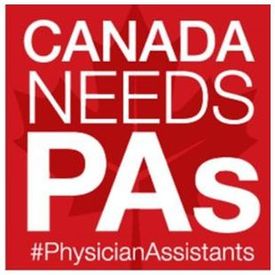OTTAWA, Nov. 27, 2015 (GLOBE NEWSWIRE) -- As thousands of physicians, physician assistants and other providers celebrate National PA Day, a new report card was released that finds several Canadian provinces have not yet embraced PAs, despite their success in helping to improve patient care while reducing costs in other jurisdictions. The Canadian Association of Physician Assistants (CAPA) released the report card and called on those provinces identified to take steps to introduce PAs so that patients benefit from improved access and just as importantly so that the savings found from employing PAs can be used to improve care in other areas.
Despite evidence from across North America demonstrating the value PAs provide in helping to reduce wait times and improve healthcare, several provinces are lagging behind with PA implementation. Healthcare continues to be top of mind for Canadians, especially for our seniors. Many jurisdictions have integrated PAs to help deal with the health human resources challenges and see them as a viable, cost-effective solution for improving access to care specifically with the projected increase in the aging population.
Provinces like British Columbia, Quebec, Prince Edward Island, Nova Scotia, Newfoundland and Labrador, Northwest Territories and Saskatchewan fared poorly on the organization's report card. Ontario, Manitoba and Alberta fared well receiving an "Outlook Positive", however, have not fully integrated PAs into their healthcare systems.
"Our PAs are currently being underutilized in Canada. If we look to other jurisdictions in the world, like the Netherlands, the U.S. and India, we know that we're just not keeping up. If you're a PA in these jurisdictions you are in high demand, because governments recognize the benefits on patient care and on their pocket books." said Chris Rhule, National President, CAPA. "We are very proud of our success in Ontario and Manitoba, and we're very excited about the outlook in Alberta. That's why we're calling on the remaining provinces to follow the evidence, and start taking steps to introduce these critical players into their healthcare systems," said Rhule. "If provinces are not willing to integrate PAs perhaps the federal government may need to include PAs in future health accords so that incentives exist to make these important changes, said Rhule".
PAs are helping an already stressed healthcare system to reduce costs and wait times. Studies have shown that PAs are a cost-effective solution to the current health human resources challenge and have been shown to reduce wait times and improve access to care. PAs can work in a variety of specialties and have yielded significant results in primary care, emergency medicine and orthopaedic settings.
Click here to view Report Card on Physician Assistant Integration:
https://capa-acam.ca/wp-content/uploads/2015/11/National_Report_Card_2015.pdf
Statistics
- PAs in primary care settings can be used for 75% of all visits without referral to physician level care.
- PAs can manage up to 62% of all patients in emergency care environments.
- In an Ontario study on the utilization of PAs; 95% of physicians working with PAs said that the PA had increased their own efficiency in providing care.
- PAs in emergency departments can reduce wait times by 1.9 times and reduce left without being seen rates by half.
- PAs can increase surgical throughput of primary joint replacements by 42% a year and reduce wait times for surgeries by 14 weeks.
- PAs in long-term care settings have been shown to decrease the hospital admission rates by 38% for seniors.
- Among those Canadians that have received care from a PA, more than 75% were satisfied or somewhat satisfied (18%) with the experience.
- 27% of Canadians have a favourable and 38% had a somewhat favourable impression of PAs.
- More than eight in ten Canadians support (56%) or somewhat support (26%) a greater role for PAs.
- 53% of Canadians are comfortable or somewhat comfortable (28%) receiving primary care from a PA under a physician's supervision.
Media contact:
Natalie St-Pierre
Director, Communications and Stakeholder Relations
613-854-0675
nst-pierre@capa-acam.ca
Natalie St-Pierre
Director, Communications and Stakeholder Relations / Directrice des communications et des relations avec les parties prenantes
Canadian Association of Physician Assistants/ Association canadienne des adjoints au médecin
613-854-0675
www.capa-acam.ca
© 2024 Benzinga.com. Benzinga does not provide investment advice. All rights reserved.
Trade confidently with insights and alerts from analyst ratings, free reports and breaking news that affects the stocks you care about.
